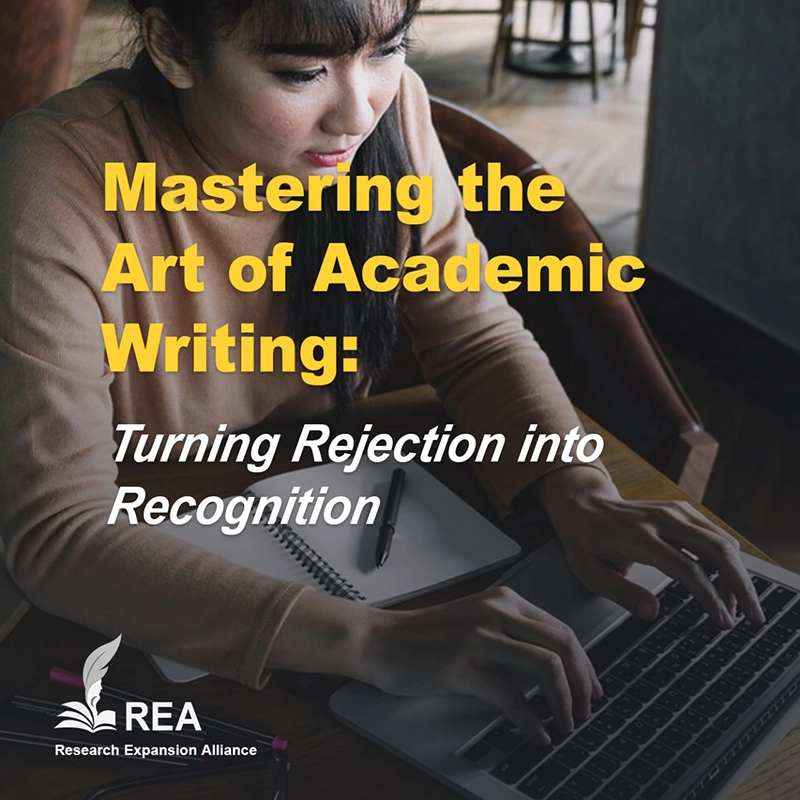Mastering the Art of Academic Writing: Turning Rejection into Recognition

Academic publishing is one of the most challenging parts of a researcher’s journey. Submitting a manuscript often requires weeks or months of careful preparation, revisions, and attention to detail. Yet, despite all the effort, the outcome is not always acceptance. Many researchers are familiar with the discouraging phrase: “We regret to inform you that your manuscript has not been accepted.”
However, rejection does not have to be the end of the road. In fact, it can be a valuable opportunity to refine your skills, strengthen your manuscript, and ultimately position your work for recognition. By approaching feedback with the right mindset, researchers can transform setbacks into meaningful progress. This concept—Turning Rejection into Recognition—is central to academic writing strategies that lead to long-term publishing success.
1. Write for Impact, Not Just Accuracy
While grammar, formatting, and clarity are essential, impactful academic writing goes beyond correctness. Strong manuscripts tell a coherent story that engages reviewers and guides them through the logic of your research. Ask yourself:
- Does each section contribute to the overall argument?
- Will readers understand the significance of my findings?
2. Show Why Your Research Matters
Many manuscripts are rejected not because of weak results but because their significance is unclear. Academic journals prioritize research that fills gaps, addresses ongoing debates, or provides insights for future studies.
To strengthen your manuscript, consider:
- What problem does my study solve?
- Which gap in the literature am I addressing?
- How does my research contribute to the broader scientific discussion?
3. Connect Your Research to Existing Literature
Situating your research within the context of previous studies is crucial. Citing authoritative sources shows reviewers that your work builds on, complements, or challenges established findings. For example:
- Learn more about academic writing strategies to present your research effectively.
- Understand which journals value your research by consulting Google Scholar Metrics.
Additionally, for readers looking for advanced support in preparing manuscripts, refer to our own guides:
- Publish Your Research Paper with Research Paper Editing
- REA Press Journal: Your Bridge to the Future of Innovative Research Publishing
4. Adapt to the Target Journal
Submitting the same version of a manuscript to multiple journals without modification is a common mistake. Each journal has its own editorial style, audience, and priorities. Before submission, ensure that your manuscript:
- Aligns with the tone and structure of the target journal.
- Highlights why your research fits the journal’s scope.
- References and situates your work within the ongoing debates relevant to that journal.
Tailoring your paper demonstrates professionalism and increases the likelihood of acceptance.
5. Seek Feedback Before Submission
Waiting for peer reviewers to identify weaknesses is risky. Share your manuscript with trusted colleagues or mentors for constructive criticism on logic, clarity, and originality. Feedback from researchers outside your discipline can also help ensure that your argument is clear and accessible.
6. Treat Rejection as Part of the Process
Rejection is inevitable in academic publishing. Even highly cited scholars face multiple rejections before their work is accepted. What separates successful researchers is how they respond:
- Read reviewer feedback objectively.
- Separate emotional responses from actionable suggestions.
- Revise strategically and resubmit with confidence.
Persistence is key. By embracing rejection as feedback, you can transform it into recognition, gaining both publication success and credibility in your field.
Conclusion
Academic writing is both a skill and a mindset. Mastering it requires clarity, storytelling, and the ability to demonstrate why your work matters. By following effective academic writing strategies and viewing challenges as opportunities, researchers can turn setbacks into milestones. Turning Rejection into Recognition is not just a motto—it’s a practical approach to achieving long-term impact in scholarly publishing.
For more guidance on academic publishing, expert resources, and manuscript support, explore REA Press.

